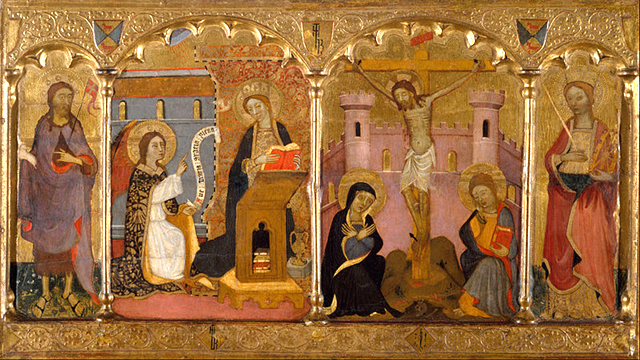 Looking for the ‘LIKE’
Looking for the ‘LIKE’
Matthew 3:13-17 • Acts 10:34-43 • Psalm 29 • Isaiah 42:1-9
 This week’s lessons all focus on the baptism of Jesus by his cousin John. Baptism comes with its own “object”—water. But lets augment this to explore baptism from a modern perspective.
This week’s lessons all focus on the baptism of Jesus by his cousin John. Baptism comes with its own “object”—water. But lets augment this to explore baptism from a modern perspective.
Today’s object is a computer mouse.
The lifestyle of Jesus’ time predates the computer era. People had to leave home to interact with one another.
Jesus, the Son of God, goes out into the countryside without GPS to find John. He wants—no, he needs—to be baptized by John.
It wasn’t hard. John was attracting a crowd. Many were seeking baptism.
But why Jesus? Baptism washes away sin. Jesus is already the sinless Son of God.
Even John realizes that he is beneath what Jesus is asking of him.
Baptism is more than the forgiveness of sin. It is a sign of God’s approval. We are welcomed into God’s family. Being part of a family comes with some expectations. Parents are to provide. Children are to grow and explore their talents. We all owe something to others.
We often view baptism as a private matter for the participation or mere gratification of immediate family. But baptism, if we can return to the water imagery for a moment, has a ripple effect. A little splash reaches out into ever-widening circles. That’s why, in the Lutheran tradition, baptisms are witnessed by the whole congregation.
The focus of the today’s readings is less on the washing away of sin but on the approval of God. The forgiveness of sin is important to us as individuals, but the approval of God empowers us within the family of God—and beyond.
Seeking approval is a life-long endeavor, exemplified today by the LIKE button. Our computers can connect or isolate us. But our craving for acceptance and belonging is so great that we’ve invented a system of approval.
Here you can wield that mouse button. If you use projection you can show a page asking for the like. You won’t have trouble finding one! You might even rig a photo array of congregational events or members for you to LIKE as you talk. You might print a like button on your bulletin and ask people to press it throughout your talk when they feel inclined.
Individuals, companies, even church organizations beg us to LIKE them. We call it social proof.
This same need prompts Jesus to seek out John the Baptist. Jesus wants to get off to a good start in his ministry. He was looking for a form of social proof.
And he got it. God was sitting in heaven with his palm on the mouse. He flicked his finger and sent a LIKE down on his Son.
And a voice from heaven said, “This is my Son, the Beloved, with whom I am well pleased.”
Jesus left the banks of the river empowered. His Father likes Him. He will do great things.
Modern people hope that the LIKE button will trigger success and more good things. It gives them something to talk about, something to build on.
- The lesson from Isaiah boldly presents a list of the great things that can be expected with God’s endorsement.
- Psalm 29 tells us just how powerful a LIKE from God can be.
- Peter’s message as recorded in Acts tells just how powerful the ripple network of LIKES can become.
Baptism is a one-time sacrament because that’s all it takes. God will love you forever. A little splash of water/love will ripple through the universe.
The next time you press a like button, remember your baptism and the one who first “liked” you.
The image below can be used to project during your message.
 Jesus Baptism: photo credit: CharlesFred via photopin cc
Jesus Baptism: photo credit: CharlesFred via photopin cc
Ripple Effect: photo credit: Sergiu Bacioiu via photopin cc










